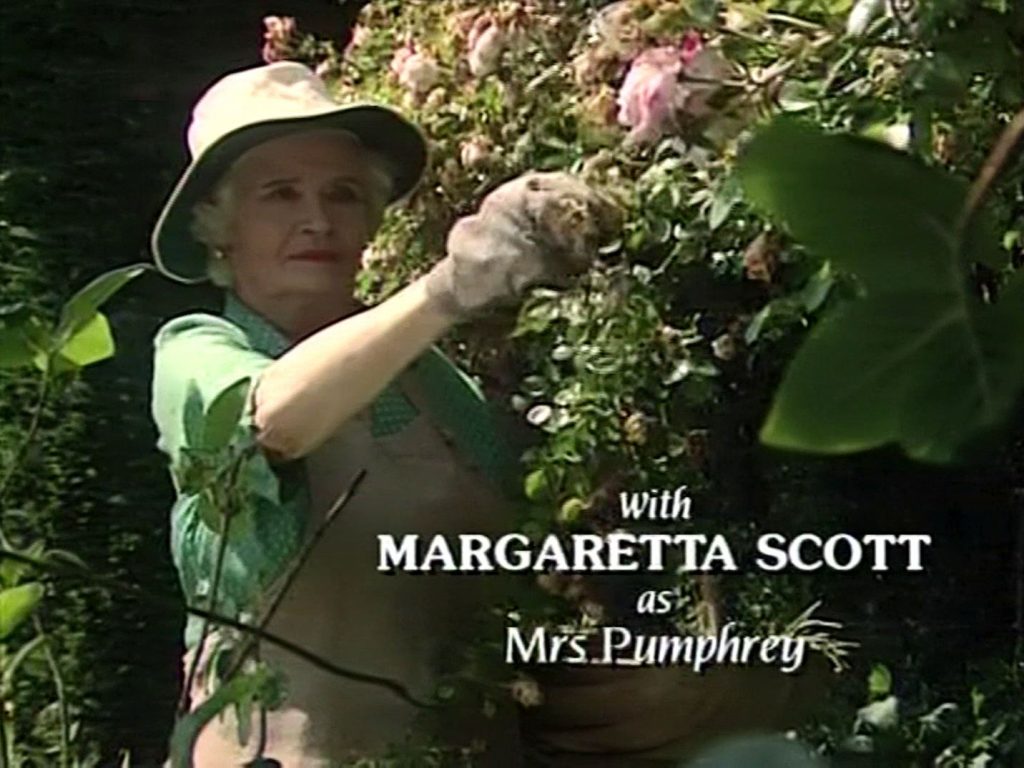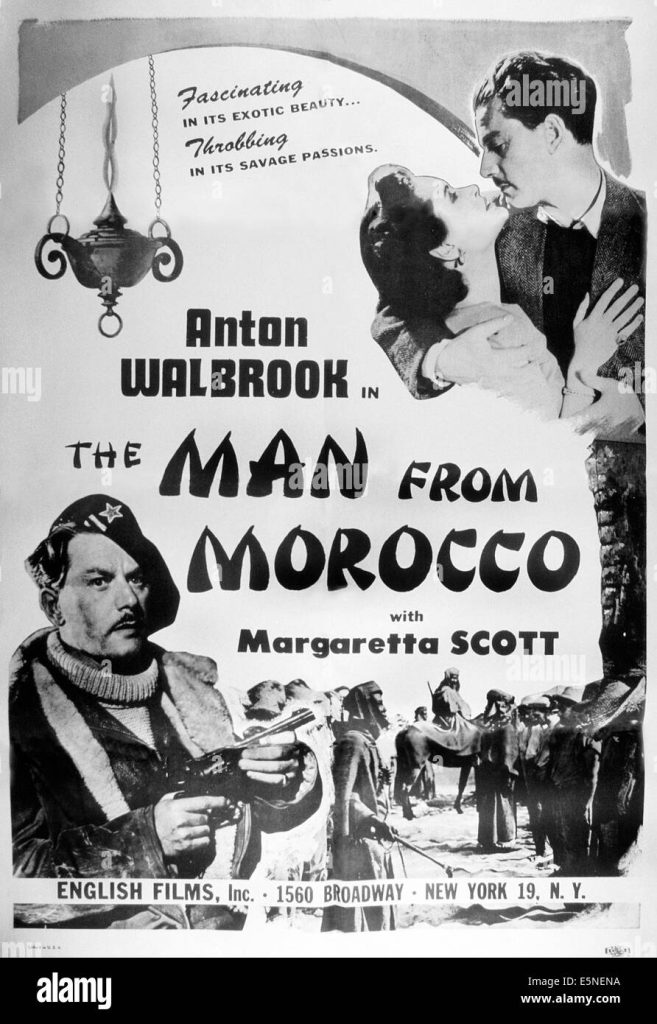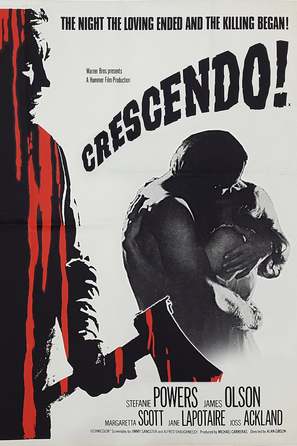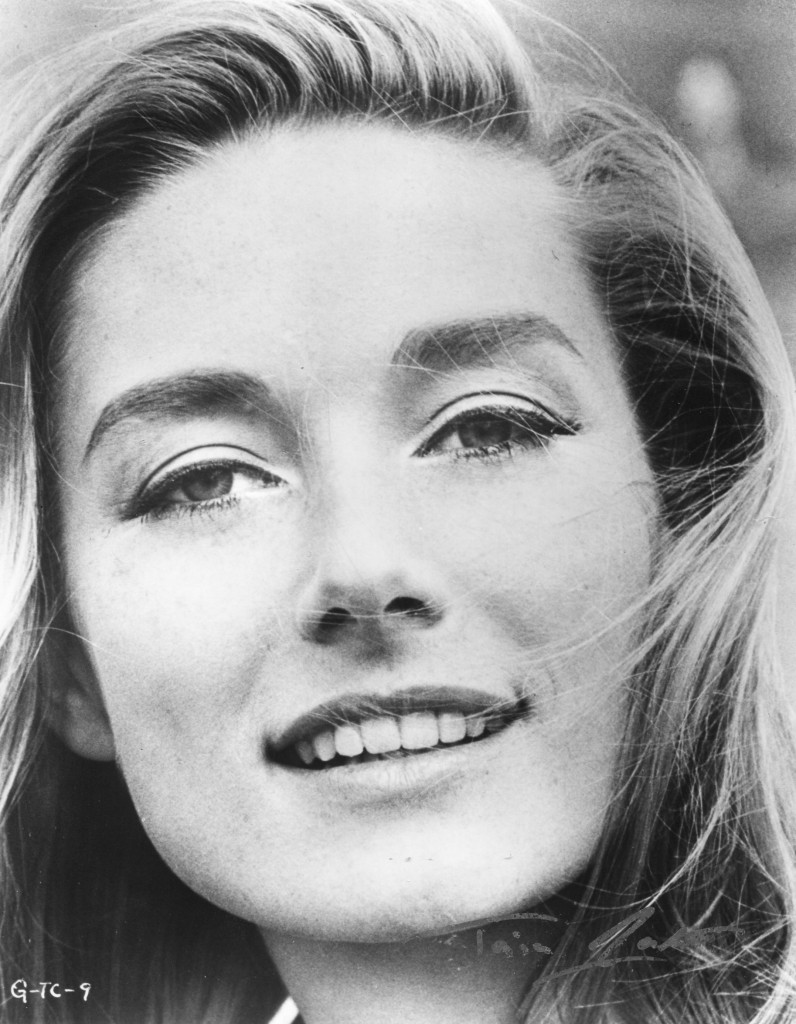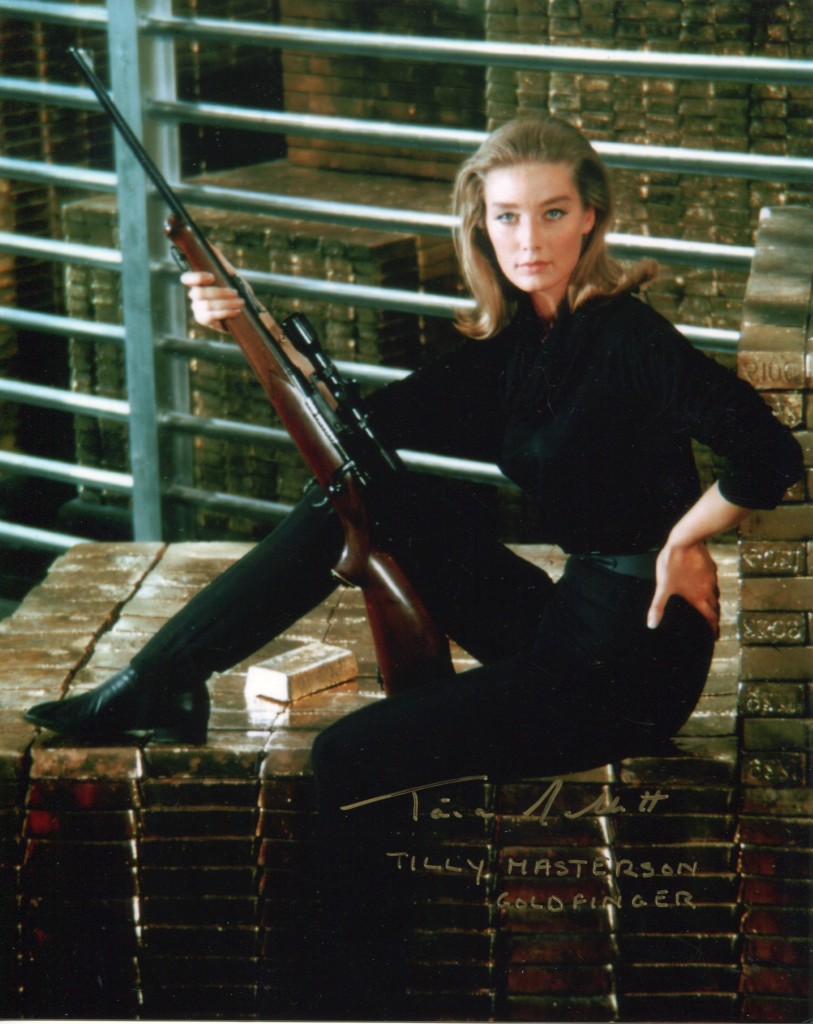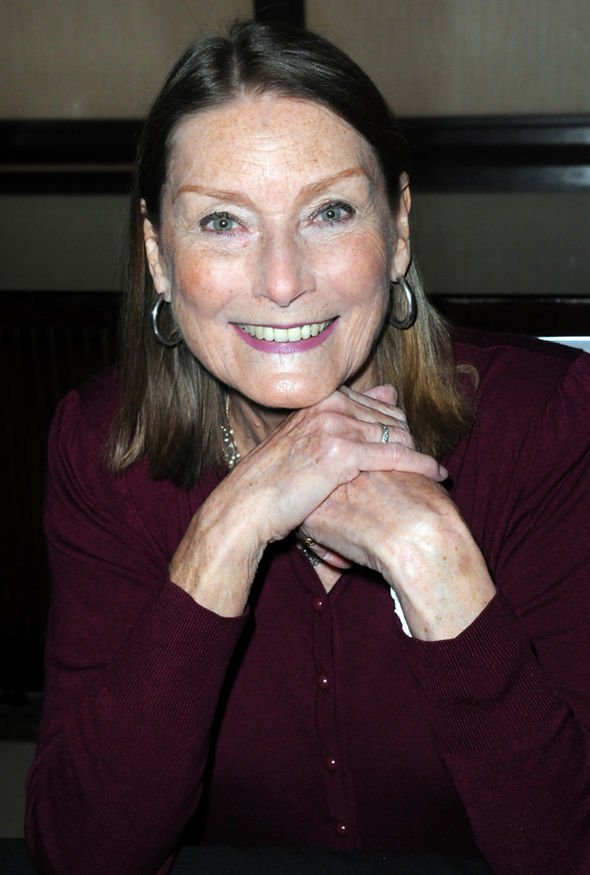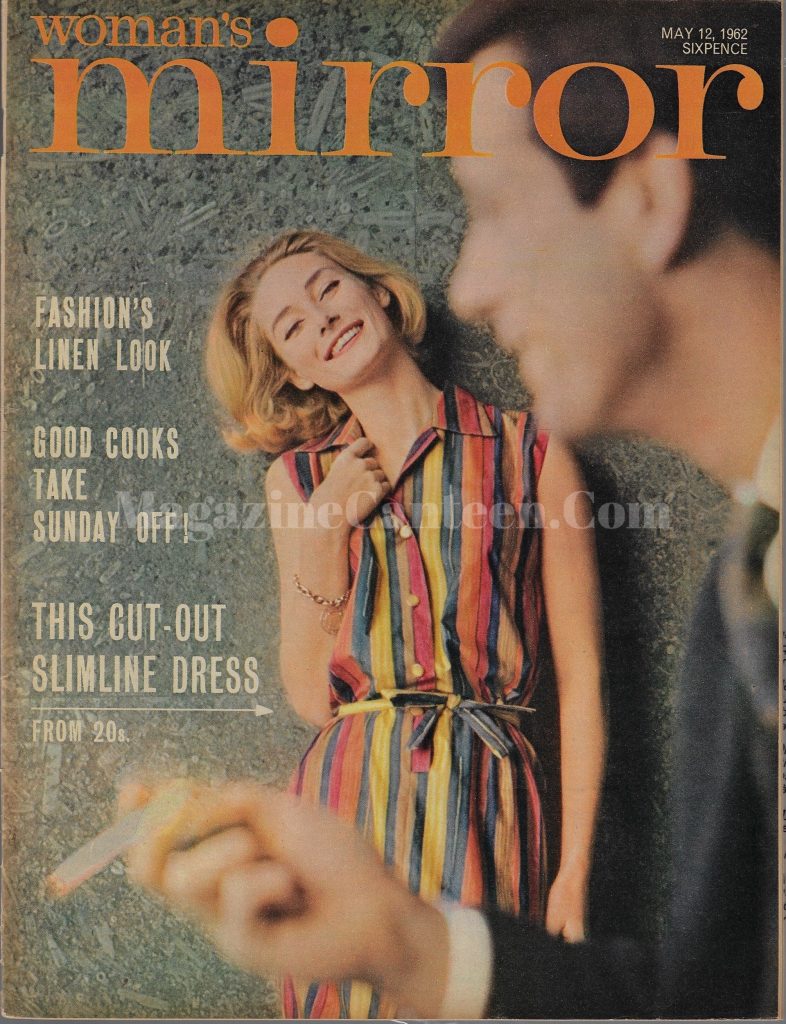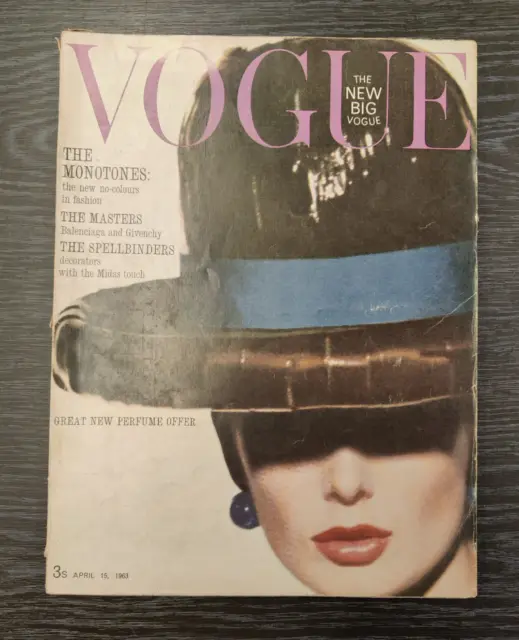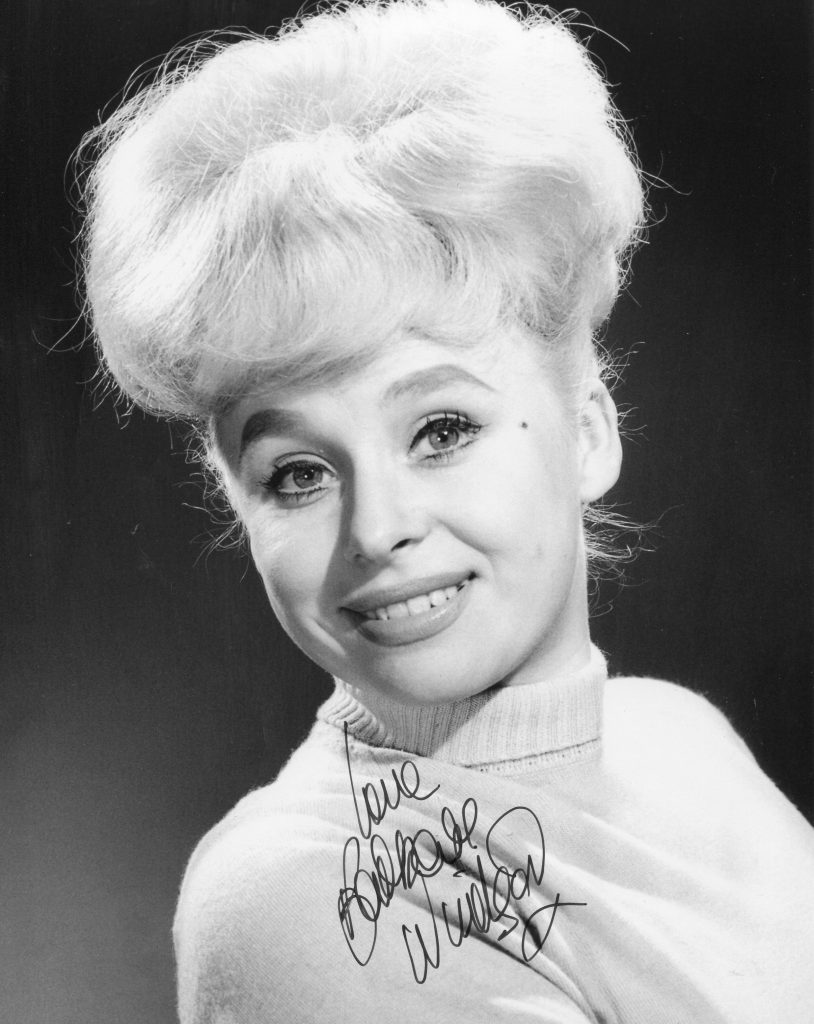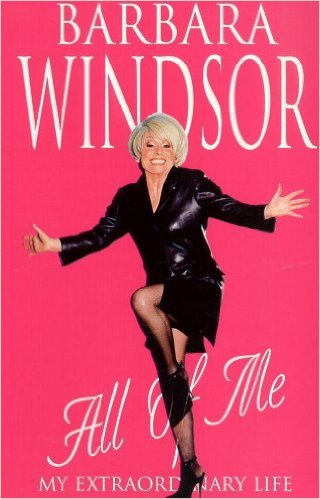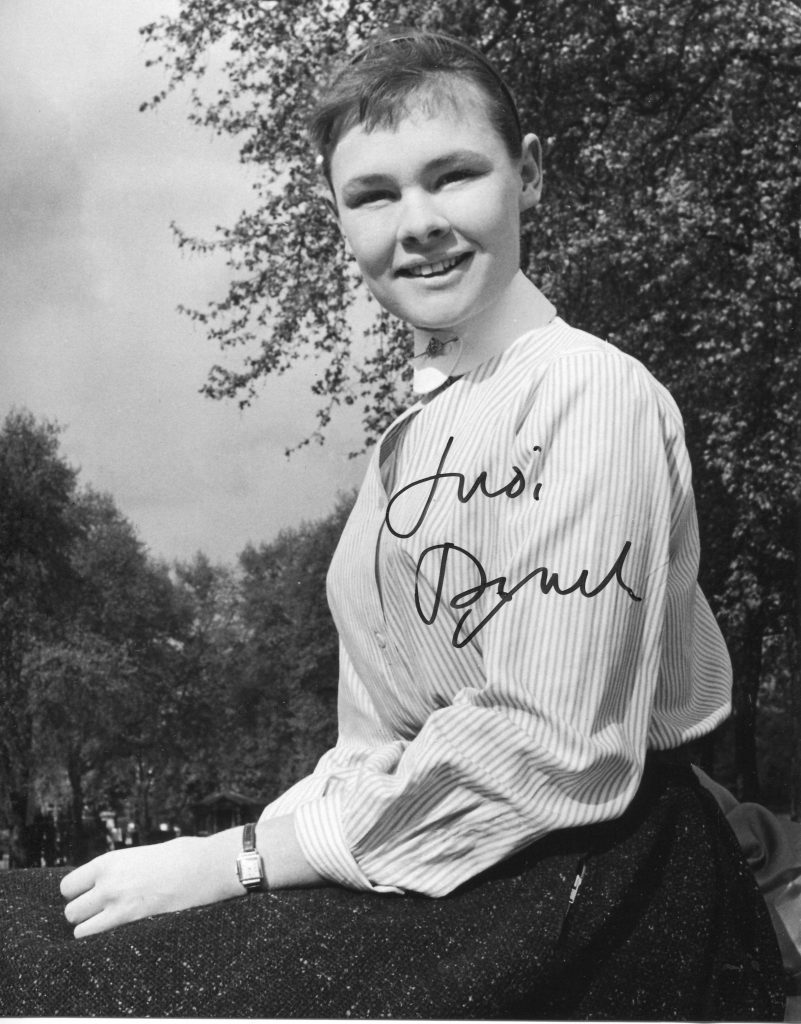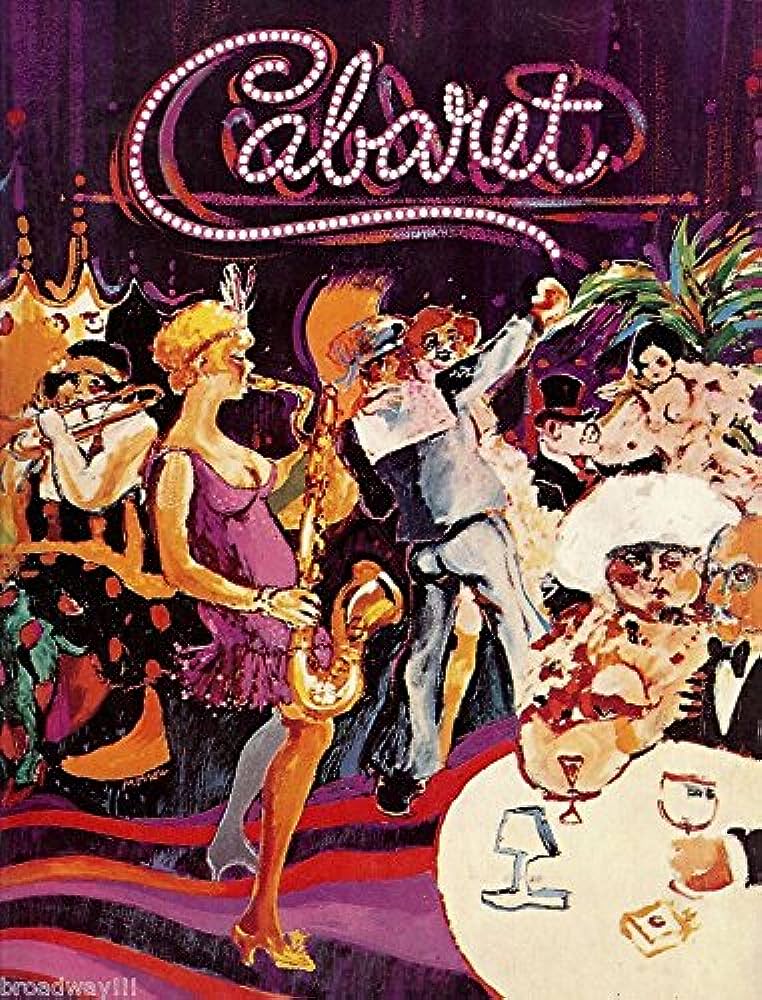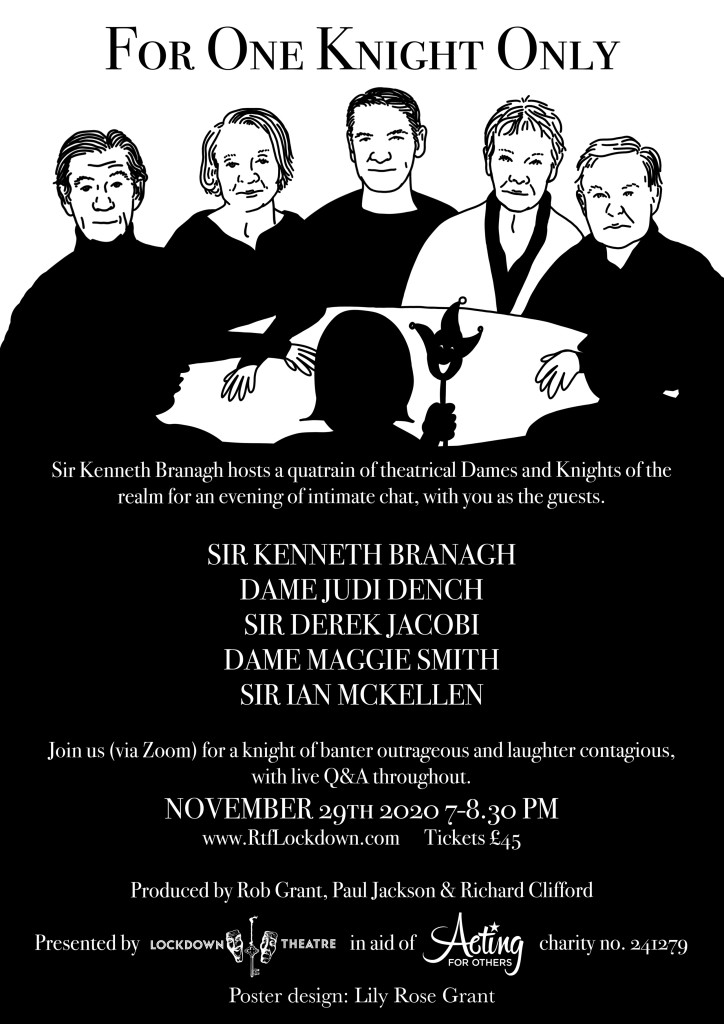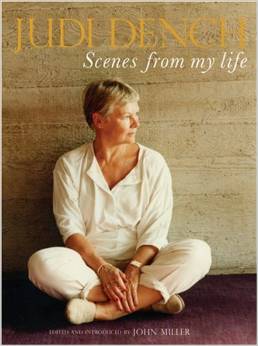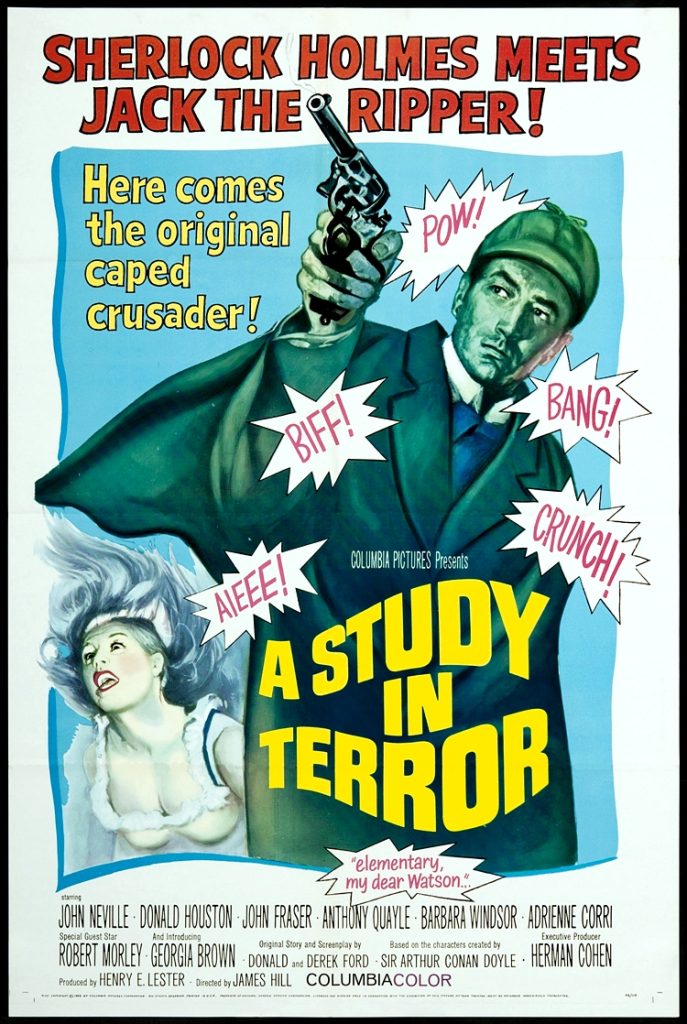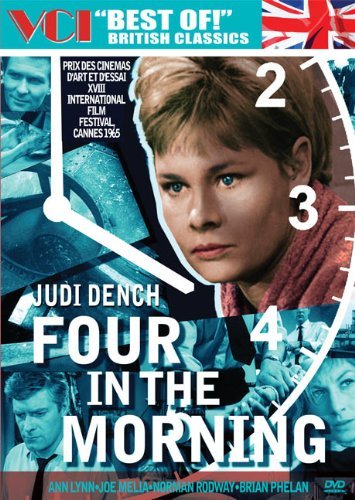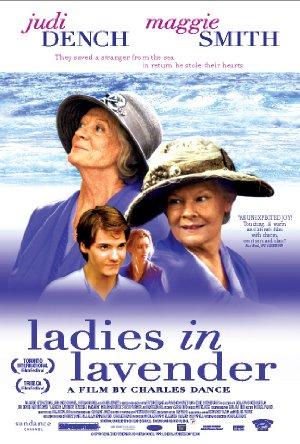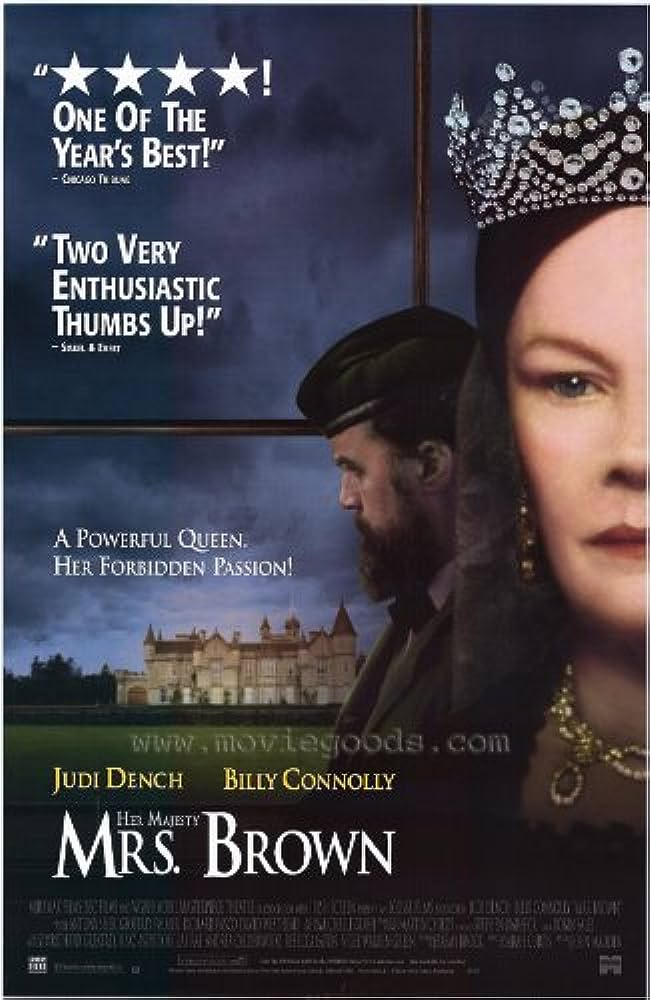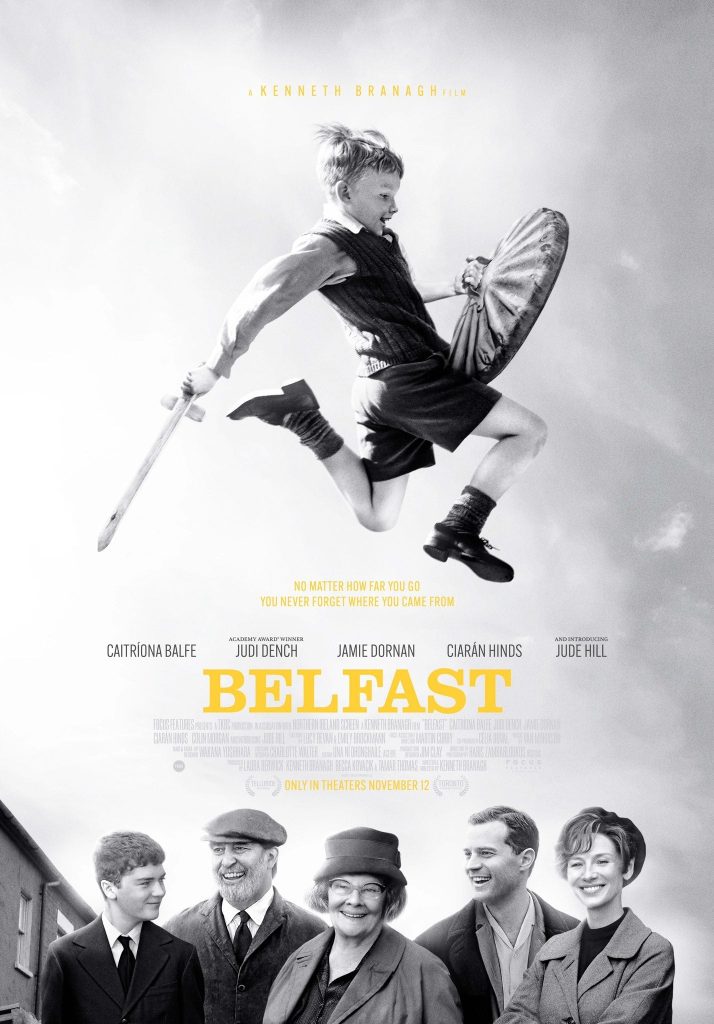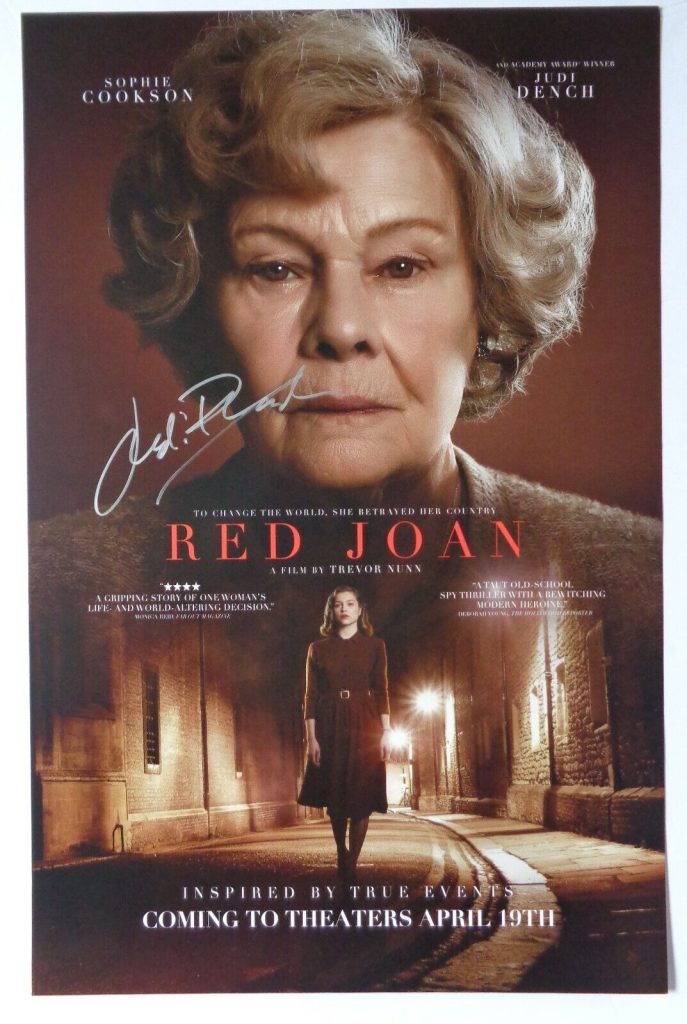Judi Dench, although an acclaimed stage performer for many years, she not achieve major recognition on film until she was in middle age. She was born in 1934 in York. She made her stage debut with the Old Vic in 1957. She made her film debut in 1964 in “The Third Secret” with Stephen Boyd. She made sporadic film appearances throughout the remainder of the sixties and early seventies. In 1985 she begain making regular film appearances in increasingly larger roles. These movies include “Wetherby” with Vanessa Redgrave, “A Room With A View” with Maggie Smith and “84 Charing Cross Road” with Anthony Hopkins. In 1995 she began her regular appearances in the James Bond series as M in “GoldenEye” with Pierce Brosnan. She won an Oscar for “Shakespeare in Love”. Recent movies include “Nine” and “Jane Eyre” and”Philomena”.
A distinguished talent widely recognized as one of Great Britain’s greatest modern actresses, Dame Judi Dench spent much of her career concentrating on stage and television in her native England. From her early years with the Old Vic Theater Company in London, Dench proved a commanding stage performer in both classic drama and musical comedy, and at the same time, was known by non-theatergoers for starring roles on the British comedy series “As Time Goes By” (BBC, 1992-2005) and “A Fine Romance” (1981-84). It was not until Dench hit her fifties that she began finding film roles that enabled international audiences the opportunity to appreciate her commanding gifts. Dench was one of the most frequently nominated actresses in Academy Award history, earning a statue for her portrayal of Queen Elizabeth I in “Shakespeare in Love” (1998) and nominations for a wide range of screen performances in “Chocolat” (2000), “Iris” (2001) and “Notes on a Scandal” (2006). A national treasure, Dench was honored by the British government with the title of Dame Commander of the British Army, and her homeland recognized her outstanding contributions to British Theater with a Laurence Olivier Award – officially proving that Dame Judi Dench was what critics had claimed for years: the modern, female equivalent of Sir Laurence Olivier, both onscreen and under the bright glare of the footlights.
The daughter of Reginald Arthur Dench, a doctor, and Eleanora Olave, a native of Dublin, Dench was born on Dec. 9, 1934 and raised as a Quaker in York, North Riding of Yorkshire. She made her acting debut in the city’s cycle of mystery plays, in which both her father and older brother Jeffrey also appeared. After graduating from London’s Central School of Speech and Drama, she made an auspicious debut with the Old Vic Theatre Company as Ophelia in “Hamlet” in 1957. The following year, Dench made a Broadway appearance with the Old Vic and remained with the troupe until 1961, excelling in such roles as Hermia in “A Midsummer Night’s Dream” (1960) and Isabella in “Measure for Measure” (1962). Throughout the 1960s, she made one strong stage characterization after another, but only in rare instances appeared on film. She was memorable as a young wife in the little-seen “Four in the Morning” (1965) and was majestic as Titania in Peter Hall’s filming of “A Midsummer Night’s Dream” (1968).
As Sally Bowles in the 1968 London staging of “Cabaret,” Dench delivered what many felt was the definitive interpretation of the role. She joined the Royal Shakespeare Company (RSC) in 1969, spending much of the next two decades amassing an impressive body of work and earning numerous accolades. After notable roles as Lady Macbeth (opposite Ian McKellen) in “Macbeth” (1977-78) and Lady Bracknell in “The Importance of Being Earnest” (1982), Dench’s screen presence increased. She held a starring turn on the television series “A Fine Romance,” starring opposite her husband Michael Williams, and on the big screen in David Hare’s provocative “Wetherby” (1985), in which she and Ian Holm played a married couple who become caught up in the personal turmoil of their friend (Vanessa Redgrave). In further film outings, she demonstrated her range with diverse portrayals of a flighty romance novelist in “A Room with a View” (1986), and Anthony Hopkins’ jealous wife in “84 Charing Cross Road” (1987).
Dench returned to the stage to play Cleopatra in “Antony and Cleopatra” (1987-88), and followed up with a pair of film roles as a materialistic mother in “A Handful of Dust” (1988) and the lusty Mistress Quickly in Kenneth Branagh’s “Henry V” (1989). She was back on stage the same year as Ranyevskaya in “The Cherry Orchard” (1989-1990). The solidly booked actress showed no signs of slowing with each advancing year, taking on a starring role on the long running British television comedy “As Time G s By” in 1992. In her most mainstream role to date, she was cast as M, the superior of James Bond (Pierce Brosnan), in “GoldenEye” (1995), which unveiled a revamped version of the franchise that successfully brought the international spy into modern times. In 1996, Dench became the first actress to win two Olivier Awards in the same year; for the play “Absolute Hell” and for her musical turn as Desiree in “A Little Night Music.” In 1997, she earned raves as an aging actress in David Hare’s acclaimed “Amy’s View” and reprised M alongside Brosnan in “Tomorrow Never Dies” (1997).
Remarkably, in a career that spanned some 40 years, Dench had never played the lead in a film until she was cast as the widowed Queen Victoria who embarks on a questionable relationship with her Scottish manservant (Billy Connolly) in the John Madden-directed “(Her Majesty) Mrs. Brown” (1997). The film was originally intended as a made-for-British-TV movie, with the role of the monarch earmarked for Elizabeth Taylor. When Taylor fell ill, Dench was cast and it was released theatrically. Her performance earned the actress some of the best reviews of her career to that point, including a richly deserved Best Actress Academy Award nomination. As a follow-up, director Madden cast her as another venerable British monarch, Queen Elizabeth I, in “Shakespeare in Love” (1998). Although Dench only appeared in a handful of scenes totaling approximately eight minutes, she made such a strong impression as the Virgin Queen that she was awarded that year’s Best Supporting Actress Oscar.
The newly minted Oscar winner took on the title stage role of “Filumena” (1998) and reprised M in the Bond offering “The World Is Not Enough” (1999). Now recognized internationally, Dench returned to the New York stage for the first time in close to four decades, reprising her triumphant portrayal of a famous actress clashing ideologically with her daughter in “Amy’s View,” for which she earned a Tony Award. Her run was briefly interrupted when she returned to England to care for her longtime husband, who had been diagnosed with cancer. At that time, she was also seen on the big screen as an eccentric artist living as an expatriate in 1930s Italy in “Tea with Mussolini” (1999). The following year, Dench headlined the HBO original “The Last of the Blonde Bombshells,” earning a Golden Globe award for playing a feisty widow reflecting on her life as a saxophone player in a WWII-era swing band. The actress agreed to provide the narration for the affecting Holocaust documentary “Into the Arms of Strangers: Stories of the Kindertransport” (2000) before gracing screens again in the pivotal role of a crusty villager who welcomes free-spirited Juliette Binoche in Lasse Hallstrom’s “Chocolat” (2000). The latter netted Dench yet another Oscar nomination as Best Supporting Actress.
Following her husband’s death in January 2001, the widowed Dench turned in two rich, very different screen performances. Hallstrom cast her as a Canadian woman who assists her nephew (Kevin Spacey) on a journey of self-discovery in the film adaptation of the bestselling novel “The Shipping News” (2001). Dench then undertook the demanding role of British novelist Iris Murdoch in the biopic “Iris” (2001), based on the memoirs of Murdoch’s husband John Bayley. The actress rose to the challenge of playing a vibrant, intelligent woman who gradually succumbs to the ravages of Alzheimer’s disease. As with all her work, Dench offered an impeccable and deeply moving performance that the members of the Academy recognized with a Best Actress nomination. She was back in period clothing for her follow-up, portraying the indomitable Lady Bracknell in a remake of Oscar Wilde’s classic play “The Importance of Being Earnest” (2002). Also in 2002, Dench returned as M in the James Bond action feature “Die Another Day,” starring Brosnan and Halle Berry.
Once finished with a brief sabbatical from onscreen roles, during which she lent her voice to the animated feature “Home on the Range” (2004) and several James Bond video games, Dench made a welcome return to the big screen in 2004 in the unlikely vehicle “The Chronicles of Riddick,” director David Twohy’s sci-fi/action sequel to his cult hit “Pitch Black.” Dench played Aereon, an ethereal Elemental who helps Riddick (Vin Diesel) learn the secrets of his origin. She essayed an appropriately imperious Lady Catherine de Bourg in 2005’s “Pride and Prejudice,” director J Wright’s lively adaptation of the Jane Austen classic starring Keira Knightley. That same year, the busy actress also headlined director Stephen Frears’ “Mrs. Henderson Presents,” starring as Laura Henderson, a widow who becomes a partner in Britain’s Windmill Theater during World War II and, in attempts to provide a spark for her downtrodden nation, hopes to allow her actresses to perform in the nude. For her performance, she earned award nominations from SAG, the Golden Globes and the Academy Awards – all for Best Actress.
Dench revived M for a fifth time in “Casino Royale” (2006), her first outing opposite Daniel Craig, successor to the iconic role after Pierce Brosnan left the franchise in 2002. Though she missed working with Brosnan, she heaped praise upon the new keeper of the flame, telling The Evening Standard how “frighteningly good” Craig was in the role. For her part, Dench maintained her usually blunt and stiff-upper-lipped performance as the head of MI6, sending him on a mission to Montenegro in order to join a high-stakes poker game with Le Chiffre (Mads Mikkelsen), banker to the world’s terrorist organizations in what many critics called one of the best films in the series. Dench made a startlingly decisive departure in her next project, “Notes on a Scandal” (2006), where she essayed a treacherous school teacher who habitually stalks younger women in a desperate attempt to find love. Once again, she accrued award nominations from the Golden Globes and the Academy Awards.
Dench returned to television the following year in the 1840s-set drama series “Cranford” (BBC, 2007), earning an Emmy nomination for her performance as a financially strapped spinster in a remote village about to be thrust into the modern age with the impending arrival of the railroad. And, not surprisingly, given the actress’ loyalty and lack of vanity in regards to size of part, she returned to the Bond fold as M for the second Daniel Craig outing, “Quantum of Solace” (2008). While basking in the international success of the latest Bond installment, Dench received a Golden Globe nomination for Best Actress in a Miniseries or TV Movie for her performance in “Cranford.” She reprised her role for the miniseries sequel, “Return to Cranford” (PBS, 2010), and received similar honors, earning another Golden Globe nomination in December 2010. Back on the big screen, she portrayed British actress Sybil Thorndike in “My Weekend with Marilyn” (2011) and was the mother of J. Edgar Hoover (Leonardo DiCaprio) in Clint Eastwood’s uneven biopic “J. Edgar” (2011). After reprising M for the last time opposite Daniel Craig’s James Bond in “Skyfall” (2012), Dench was part of an excellent ensemble cast in John Madden’s winning comedy “The Best Exotic Marigold Hotel” (2012), which focused on a group of British pensioners retiring at a lesser-than-advertised hotel in India. Dench’s performance as a newly widowed housewife forced to sell off her home to cover her dead husband’s debts was singled out for praise and earned her a Golden Globe nomination for Best Actress in a Comedy or Musical. Dench’s next starring role came in the drama “Philomena” (2013), the true-life tale of an elderly Irish woman’s search for the son she had been forced to give up for adoption a half-century before. The film was directed by Stephen Frears and co-written by Steve Coogan, who co-starred opposite Dench as an investigative journalist.
The above TCM overview can also be accessed online here.


